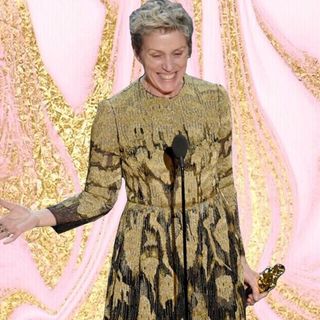
Katy Perry Misses the Memo on That Whole Consent Thing
Slept through #MeToo, have you, Katy?

In an American Idol episode that aired this week, Katy Perry showed the world how incredibly tone-deaf even the most visible and connected celebrities can be about the cultural dialogue happening around them.
Benjamin Glaze, a young songwriter from Oklahoma, came on stage to perform, and talked about not having been in a romantic relationship and how he was waiting to experience his first kiss until he was in a relationship because he wants it to be “special.” In response, after he finished performing, Katy asked him to, “Come here right now.” She then demanded he kiss her cheek, complained that he didn’t kiss her the way she wanted. She then asked for another, proceeding to turn her head as he leaned in so his next kiss landed on her lips.
The show was taped in October, but since it was aired this week, media outlets reached out to Glaze to ask him how he felt about the kiss. He called it “uncomfortable” and said he wouldn’t have chosen to have his first kiss happen that way, because he “would have wanted it to be special.” But he also acknowledged that it was a positive promotion for his career and raised the visibility of his music.
It’s great that Glaze is able to personally take a positive perspective, but it begs the question: Has Katy Perry been living under a rock? If there’s anything the #MeToo movement has done successfully, it has made people hyper-aware of the power dynamics inherent in sexual exchanges that would have seemed acceptable even only a decade ago. Here, Katy, a powerful, rich, successful woman judging a competition, thought it appropriate to demand a kiss from a young man whose professional success is almost entirely in her hands. It’s hard to imagine that anyone would have found this remotely palatable if the gender roles were reversed, and an older man were demanding that a young girl come over to kiss him “right now.”
Furthermore, the public stage for this humiliating power play lays bare the worst elements of the “casting couch” culture of creative talent. For decades, young, inexperienced women have complained that the only way to advance their careers in fickle and unpredictable creative industries is to bow to the sexual demands of the people dominating the industry. The #MeToo movement is finally starting to make inroads in correcting this ingrained, degrading practice. Katy Perry set back the clock when she made the set of American Idol her own, personal casting couch, and gave the world a front row seat to just how obtuse she is.
Related


The Buzz Cut: And the Oscar for Calling Out Sexism Goes To…
